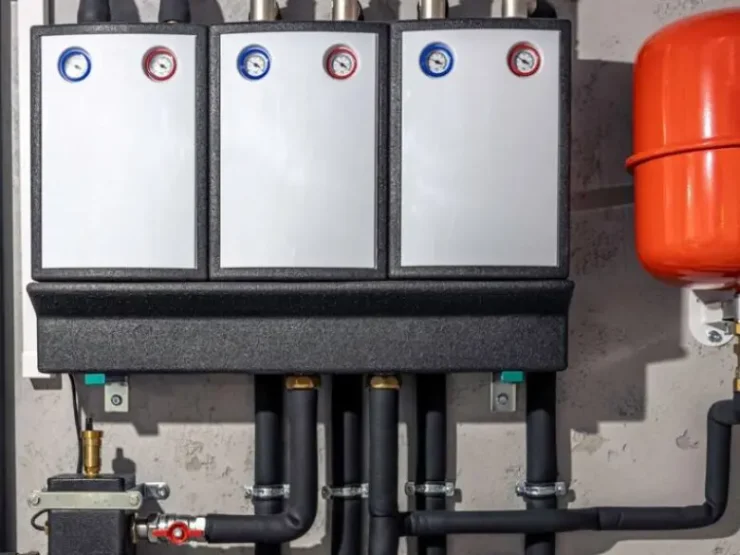Table of Contents
Heating Interface Units (HIUs) are essential to many modern heating systems, particularly in communal or district heating setups. Like any mechanical system, regular maintenance is crucial to ensure optimal performance and longevity.
Proper care reduces the risk of breakdowns, saves on energy costs, and ensures that the system operates efficiently. The following guide will explain the essential elements of HIU maintenance, offering practical advice for those looking to keep their systems in top condition.
Regular HIU service ensures you avoid unexpected breakdowns. Having specialists look at your system allows them to fix issues that aren’t visible to the untrained eye. London-based providers such as R&B London offer comprehensive solutions, giving you peace of mind that your system is in expert hands.
What is an HIU?
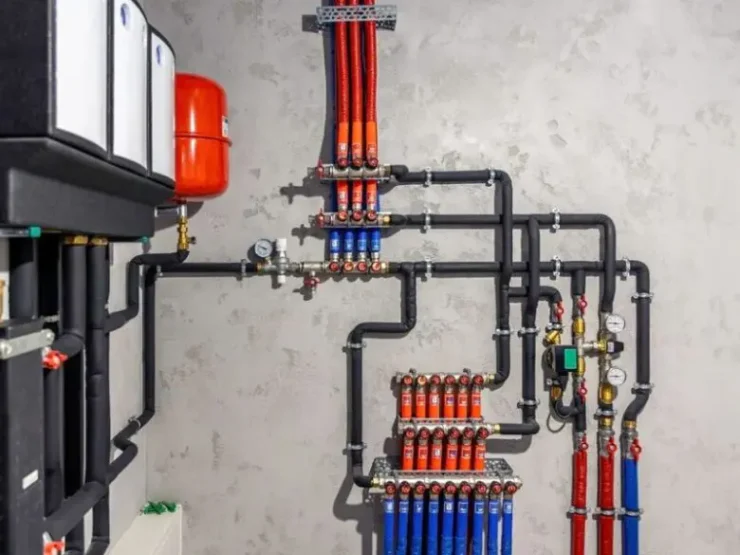
An HIU transfers heat from a central source to individual units, usually in apartments or multiple-occupancy buildings. It connects to a communal heating network, delivering heat for both space heating and domestic hot water. Efficient and reliable, HIUs allow properties to benefit from shared energy resources without compromising individual control over usage.
The Basics of HIU Service
The first step to keeping your HIU in top condition involves a proper HIU service. By scheduling regular inspections with a reliable professional, you ensure that every component works as it should. During an inspection, engineers will:
- Check the heat exchangers for signs of wear or corrosion.
- Inspect and replace faulty parts.
- Assess and clean filters and strainers.
- Measure the flow rates and adjust controls for optimal efficiency.
- Ensure that all sensors and control mechanisms operate correctly.
It’s not just about repairing obvious faults. A qualified professional will optimise your system, ensuring the HIU delivers the right amount of heat when needed.
Key Components Requiring Maintenance
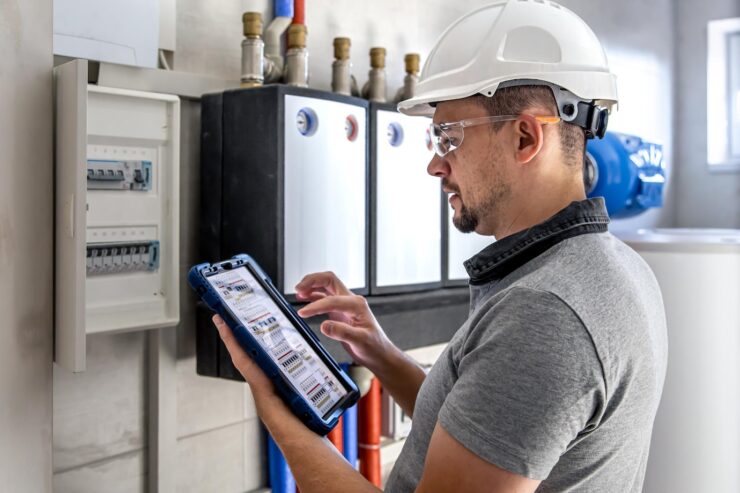
Each part of your HIU plays a role in keeping your system functional. It’s essential to understand which components need attention and what problems typically arise:
Heat Exchangers
Heat exchangers are the core of your HIU. They transfer heat from the communal system to your domestic heating and hot water. Over time, they become less efficient due to scaling, corrosion, or wear. If the heat exchangers aren’t cleaned and checked regularly, your system won’t deliver the desired output. This leads to higher energy consumption and uneven heating.
Filters and Strainers
Filters and strainers protect your HIU by keeping debris and contaminants out. Dirt, rust, and other particles collect over time, clogging these components. Clogged filters reduce system efficiency, requiring more energy to achieve the same results. Regular cleaning and replacement of filters ensure your system operates smoothly.
Sensors and Controls
The control mechanisms and sensors in your HIU allow the system to adjust based on your heating requirements. Faulty sensors lead to inaccurate readings, meaning your system either overheats or underperforms. Regular testing ensures that all controls are functioning correctly, ensuring efficient operation.
Valves and Pumps
Valves control the flow of water through your HIU, while pumps ensure that hot water circulates effectively. Over time, valves wear down, and pumps lose their efficiency. Without attention, you’ll notice issues with your hot water supply or heating, as the system struggles to distribute heat effectively. Replacing or repairing faulty valves and pumps extends the life of your HIU and prevents costly repairs later.
How Often Should You Service Your HIU?
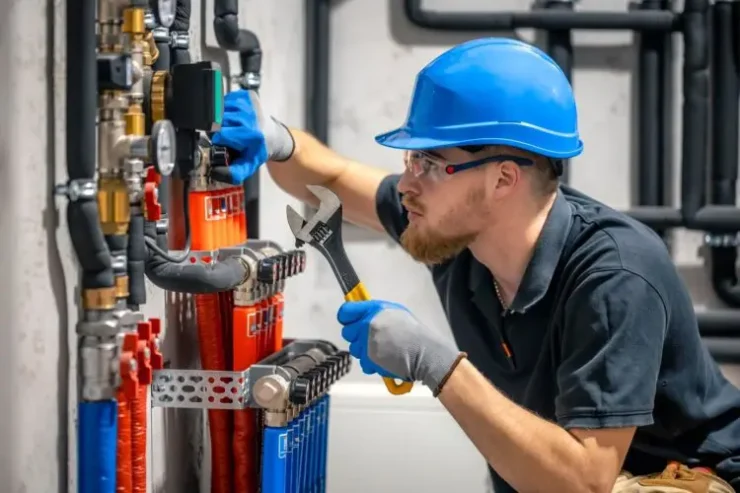
Experts recommend an annual service to keep your HIU in top condition. Regular checks are essential for spotting issues early. If your system is older or used heavily, you might need more frequent inspections. Never ignore warning signs, such as strange noises, reduced heating, or fluctuations in hot water availability.
Older HIUs often experience more issues, so make sure that you schedule more frequent checks. The cost of regular maintenance is far lower than that of emergency repairs. If your system is relatively new, annual servicing will still benefit you by ensuring everything stays running efficiently.
Energy Efficiency Benefits
A well-maintained HIU offers significant energy savings. By ensuring every component works as it should, you reduce wasted energy. A minor issue like a dirty filter or malfunctioning sensor may not seem critical, but over time, it adds up in increased bills.
Modern systems often come with energy-saving features, but only if those systems are properly maintained. In addition to the financial benefits, maintaining your HIU helps reduce your carbon footprint. An efficient system consumes less energy, reducing emissions and contributing to a greener environment.
Common HIU Problems and How to Prevent Them
- Scaling: Limescale builds up in the heat exchangers, reducing efficiency. Using water softeners or regularly descaling your system prevents this.
- Leaks: Old or faulty components often lead to leaks. Regular servicing identifies and repairs leaks before they cause significant damage.
- Blockages: Dirt and debris clog filters, strainers, and pipes. Cleaning and replacing filters regularly prevents blockages and keeps your system running smoothly.
- Control Failures: Malfunctioning sensors and thermostats lead to inefficient heating. Regular checks ensure that your controls work as they should.
Preventive measures are always more cost-effective than repairs. By taking a proactive approach, you avoid the stress and expense of a complete breakdown.
Professional Help is Essential
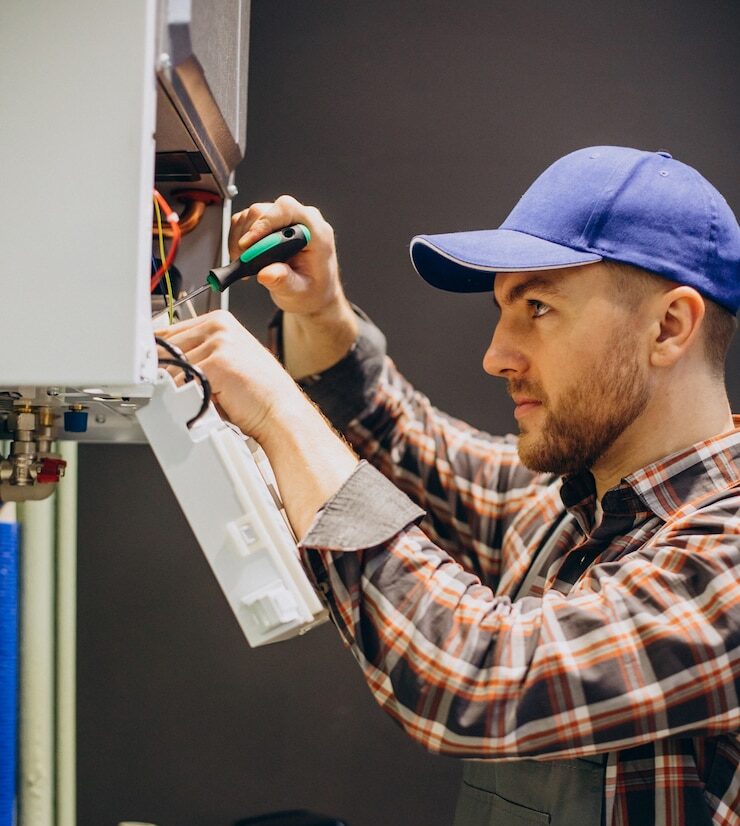
While basic maintenance such as filter cleaning can be done by the homeowner, the rest requires professional attention. A qualified HIU engineer will provide the expertise needed to address complex problems. The intricacies of an HIU demand a high level of knowledge, and attempting to repair the system yourself often leads to more damage.
An experienced technician not only repairs obvious faults but also ensures that the system works at its most efficient level. Trust professionals who have the experience, the right tools, and access to the necessary parts.
Signs Your HIU Needs Immediate Attention
If your HIU displays any of the following issues, contact a professional immediately:
- No hot water or inconsistent hot water supply.
- Strange noises such as banging, whistling, or clunking.
- A sharp rise in your energy bills.
- Visible leaks around the unit.
- Delaying repair in these instances leads to further damage and higher costs down the road. It’s always better to address problems early, before they become severe.
Conclusion
Maintaining your HIU is essential for ensuring a reliable, efficient, and long-lasting heating system. Regular inspections, performed by a qualified professional, extend the life of your system and reduce the risk of unexpected breakdowns. Investing in proper care leads to energy savings, lower bills, and a more environmentally friendly home.
Pay attention to key components, schedule regular service, and always address issues immediately to keep your system running smoothly.

